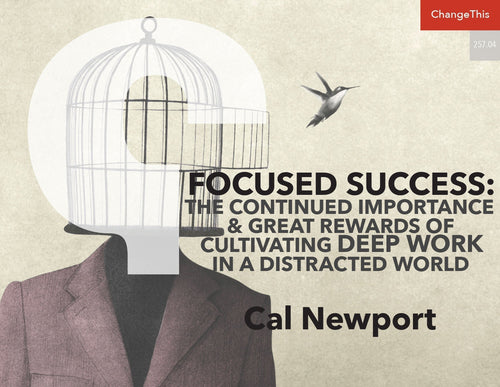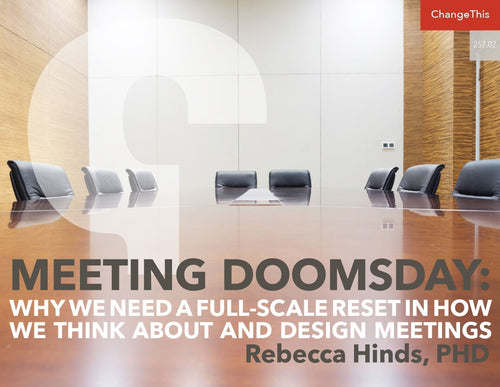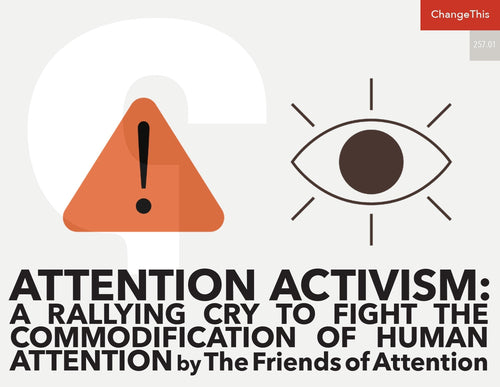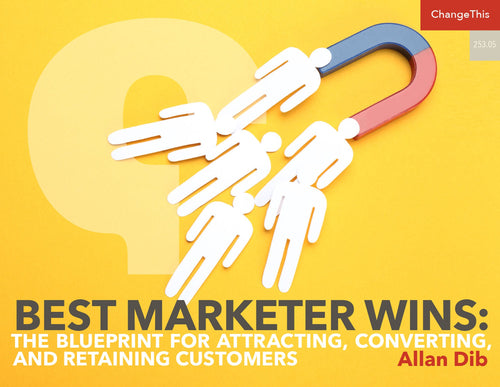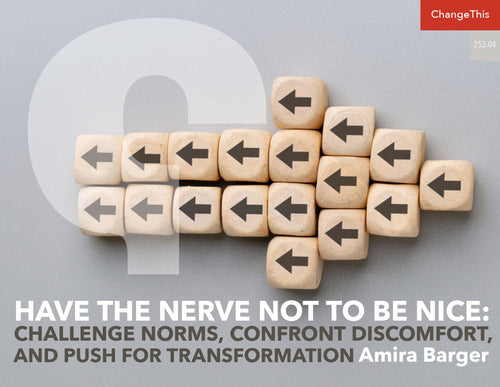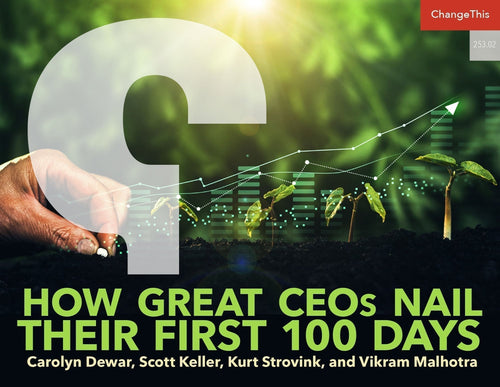Introversion Is a Superpower: Embracing Your Personality Type In Your Personal Brand
Creating a personal brand is not only about promoting yourself, and is not reserved for extroverts. Goldie Chan, named "The Oprah of LinkedIn," highlights the traits that make introversion a superpower in building a successful life and career.
In the 1920s, psychologist Carl Jung introduced the concept of introversion versus extroversion, which has now become one of the most mainstream ways of categorizing personality types. The key distinction is that introverts are energized by their own inner workings and time spent alone, while extroverts are recharged by social interaction and engagements.
Because extroverts tend to be more talkative and take up more space, they are often the first to be noticed and rewarded—especially in American culture, which values assertiveness and taking charge: the typical American cowboy stereotype. Yeehaw. But the examples of reclusive famous folks reveal that a strong presence can be created not through typical extroverted behavior but through the abilities and talents of the introverted person. Our quiet power is not a weakness or obstacle. Rather, introversion is a unique asset that empowers our ideas and enables us to achieve what often seems impossible.
You have likely heard the terms “introvert” and “extrovert,” and you may even keenly identify with one of these two distinct personality types. Introversion and extroversion represent two different personalities and styles of thinking. Many myths have emerged about them, including the idea that you can only ever be an introvert or an extrovert. In modern psychology theories, however, the introvert–extrovert continuum is considered a spectrum rather than a division into distinct personality types. Three personality types are commonly identified: introvert, extrovert, and ambivert.
Understanding your personality traits helps you recognize what makes you feel satisfied and content in your professional, personal, and social lives. After all, these traits define how you connect with and respond to your surroundings. It is also essential for creating a personal brand, which can be a challenging task for anyone, but is even more so for those of us who don’t enjoy the extroverted strategies that personal brand building often relies on.
Publishing executive Steve Forbes once said, “Your brand is the single most important investment you can make in your business.” Dedicating time, effort, and resources to your personal brand is essential for your success. By regularly reevaluating your goals for your brand, you take a proactive approach to building both your brand and your impactful legacy. A personal brand is a lifelong project that will constantly evolve and change.
Creating the right personal brand will not only help you gain recognition in your field and consistently land work; it could also mean the difference between hearing “Who are you?” and “Thank you for being here” in your career.
Personal branding isn’t only about promoting yourself. It’s about sharing your values, your story, and how you engage with others. Even if you don’t develop a personal brand for yourself professionally, you can still use the knowledge of how to do so to navigate the world as an introvert and achieve success in both your career and personal life.
If you are serious about your career, personal branding will not only enhance your professional life but also bring greater fulfillment. And here’s the good news: You don’t have to do anything that doesn’t align with who you are. The key is to focus on the activities and interests that energize you and build your brand from there.
Success isn’t reserved for those with loud personalities. It belongs to those with purpose, authenticity, focus, and the willingness to stay the course—traits you clearly possess.
WHY INTROVERSION IS A SUPERPOWER
Introverts often grow up feeling out of place. After all, we live in a noisy, fast-paced world that sees open communication as a virtue. While life might seem to revolve around extroverts, the contributions of introverts are equally important. Introverts possess many qualities that benefit both themselves and those around them.
Here are a few of my favorite superpowers that can help introverts excel in the development of their personal brand.
EMOTIONAL INTELLIGENCE | Are you in touch with your emotions? Emotional intelligence is the ability to recognize, use, and manage your emotions in a positive way to communicate well, deal with stressful situations, empathize with others, and overcome challenges.1 It is the building block that allows introverts to grow healthy relationships (both personal and professional), reach career goals, and connect with their feelings so they can make good decisions.
As introverts, we are able to understand cues in conversations and identify people’s strengths. When we choose to interact with people, we often connect deeply with them. Authors Daniel Goleman and Richard Davidson explain in their book Altered Traits: Science Reveals How Meditation Changes Your Mind, Brain, and Body that the four key skills of emotional intelligence in an introvert are self-management, self-awareness, social awareness, and relationship management.2
- Self-management: We are able to manage impulsive feelings and sudden changes in our environments, making clear and thoughtful decisions once we have put enough energy into doing so.
- Self-awareness: We are aware of our emotional fluctuations and how they influence our behavior and thoughts.
- Social awareness: We are able to understand others—the cornerstone of empathy. By picking up on subtle emotional and sociological group dynamics, we can comfortably navigate and mediate for others.
- Relationship management: We exhibit skill in deftly handling our relationships in work and life.
I’m not saying all introverts have all these skills, but most of us have at least one or two of them. By focusing on improving these aspects of emotional intelligence, we can develop effective relationships and navigate our problems to enhance our personal brand.
EFFECTIVE COMMUNICATION | Do you like meaningful conversations? While not all introverts are comfortable openly sharing their feelings and thoughts, they can often be highly effective communicators. Introverts are frequently labeled as quiet and shy, but as we’ve discussed, these traits don’t apply to everyone. In fact, several of my introverted friends are powerful public speakers, hosts, and presenters who can easily command a room full of hundreds or thousands of attendees. I’ve seen it happen!
Introverts may find icebreakers, small talk, and networking challenging, but they can have meaningful conversations with the people they’re close to. Most are good listeners, pay attention to detail, and respond admirably.
EXISTING INDEPENDENTLY | Do you value your independence? A Polish proverb states, “Eagles fly alone; only sheep walk in herds,” highlighting the importance of self-reliance.3 Eagles have long symbolized independence, resilience, and freedom. It’s no surprise that many motivational poems feature eagles and hawks as symbols—they soar solo, depending on no one but themselves.
Similarly, I believe introverts can thrive independently. Independence is different from being alone, which can feel lonely. Independence reflects a fulfilled existence, while loneliness carries negative connotations of dissatisfaction. Although relying on others and socializing are important parts of life, overdependence on others can hinder growth and success. Introverts often prefer to work quietly and independently to achieve their goals. I see this as a very effective superpower.
CREATIVITY AND ACTIVE IMAGINATION | Do you love creating or daydreaming? When I was very little, I liked to play in a part of the playground that had a flat hubcap. I pretended it was a cooking station and would host an imaginary food TV show using it as a prop. For introverts, spending time alone, especially as children, is powerful. We generally enjoy getting lost in our imaginations through reading (I liked to read comics and fantasy books), writing, arts and crafts, and fantasizing. I believe that introverts are much more likely to become designers, writers, engineers, and artists as adults. Psychologist Hans Jürgen Eysenck has stated that creativity and introversion go hand in hand.4
During his acceptance speech as winner of the Nobel Prize for Literature, Ernest Hemingway said that in order for writers to produce their best work, they must spend time in solitude.5 Introvert Steve Wozniak, who helped launch the personal-computing revolution while partnering with extrovert Steve Jobs at Apple, often found himself working alone late into the night. Wozniak believed that inventors and engineers are like artists and prefer to work solo.6
Why are so many introverts imaginative and creative? It may be largely because introverts need less dopamine—the hormone associated with happiness and satisfaction—to seek external rewards like getting a promotion or making money. Instead, introverts are addicts of acetylcholine, another feel-good hormone, which is activated through inward-focused activities. Acetylcholine affects our ability to think deeply, reflect, and focus intensely on one idea for a long period of time.
SELF-AWARENESS | Do you often consider how your actions affect yourself and others? Robert Wicklund and Shelley Duval, two well-known psychologists, note that self-awareness is “the ability to focus on yourself and how your actions, thoughts, or emotions do or don’t align with your internal standards. If you’re highly self-aware, you can objectively evaluate yourself, manage your emotions, align your behavior with your values, and understand correctly how others perceive you.”7 I’ll add that you can easily assess yourself, manage your emotions, and align your behavior with specific values. Self-awareness is a rare skill that’s only developed through deep introspection.
According to an article by executive coach Tasha Eurich that appeared in the Harvard Business Review, there are two types of self-awareness: internal and external.8 Internal self-awareness is about evaluating personal thoughts, reactions, and feelings with curiosity. For instance, you may feel nervous while preparing to speak at a large group meeting. After analyzing the physical sensations, you can attribute this uncomfortable emotion to feeling anxious—and perhaps being unprepared. Research suggests that self-aware people are more self-confident, are better decision-makers, and have better relationships.9 All these qualities are important for success.
External self-awareness refers to being self-conscious of our public image. We are likely to find ways to act that are deemed “socially acceptable” instead of being our real selves.
While having external self-awareness is important, it can often work against you when you only focus on how others see you.
DEEP THINKING | Do you ponder issues thoroughly? Introverts are usually intelligent, hardworking, and thoughtful. I excelled in high school and earned a degree from a prominent university. I used deep focus to achieve success, and if I had been more interested in meeting people and going out, I’m unsure if I would have had the time or resources to accomplish these things.
In a 2012 study, Avram J. Holmes and other prominent researchers found that introverts have thicker grey matter in their prefrontal cortexes.10 This area of the brain is linked to abstract thought processes and decision-making, which helps explain why introverts, like myself, spend so much time thinking. Author Jenn Granneman wrote that, according to psychologist Laurie Helgoe, introverts often have higher levels of electrical activity in the brain, indicating more cortical arousal.11 The cortex itself is responsible for vital functions like memory, thinking, emotions, and even controlling body movements.
This largely explains why introverts love to ponder.
Introverts enjoy spending time alone, which gives them the freedom and space to think deeply. Solitude is generally associated with new insights and ideas.
PROBLEM-SOLVING | Do you contemplate solutions to problems? Introverts can frequently see the broader perspective and take the time to connect the hidden dots of a problem, ultimately reaching a clear solution. Introverts are naturally great problemsolvers, with an innate ability to consider and process multiple solutions while identifying potential pitfalls to avoid.
Consider the example of Albert Einstein. As an introvert and a highly accomplished physicist, Einstein solved many complex problems, such as energy transfer, and developed concepts like Brownian motion, the photoelectric effect, and the general theory of relativity. In fact, Einstein himself stated, “If I had an hour to solve a problem, I’d spend fifty- five minutes thinking about the problem and five minutes thinking about the solution.”12
In addition to their analytical mindset, introverts make great problem-solvers due to their ability to collect and synthesize information from multiple sources. By taking a very careful, step-by-step approach to understanding all the information available, introverts typically gain a more comprehensive understanding of the issue they are attempting to resolve, allowing them to make effective and intelligent decisions.
GREAT LEADERSHIP | Do you help lead teams? It is a common misconception that leadership positions are better suited for extroverts. Introverts possess many characteristics that make them highly effective and compassionate leaders. Compassion is a significant leadership quality because it helps develop trust, loyalty, and rapport among team members.13 In fact, deep understanding from leaders fosters a welcoming environment where team members feel appreciated, valued, and supported.
Introverts’ empathy allows them to tune in to the needs and emotions of others. By forming deep connections, they take a thoughtful and adaptable approach to each decision they make. In fact, they spend more time considering the pros and cons of a situation before resolving it.
Although it may seem that extroverts run the world, introverts possess their own strengths and skills. Introversion is not a personality defect or flaw that needs to be removed. Introverts can feel isolated in a world that favors extroversion (especially for career growth), but it is absolutely okay to be an introvert in both life and work, and there is no right or wrong way to be an introvert. Understanding and using the strengths of your personality type is a superpower. Embrace it and create a personal brand that truly reflects who you are.
Adapted from Personal Branding for Introverts. Copyright © 2025 by Goldie Chan. All rights reserved.
About the Author
Goldie Chan is a brand and storytelling speaker, writer, and content creator and an introvert. She is the founder of Warm Robots, an award-winning social media strategy agency. She has been named the “Oprah of LinkedIn,” was a senior contributor to Forbes, and writes for Archie comics. She lives in Los Angeles, California.




